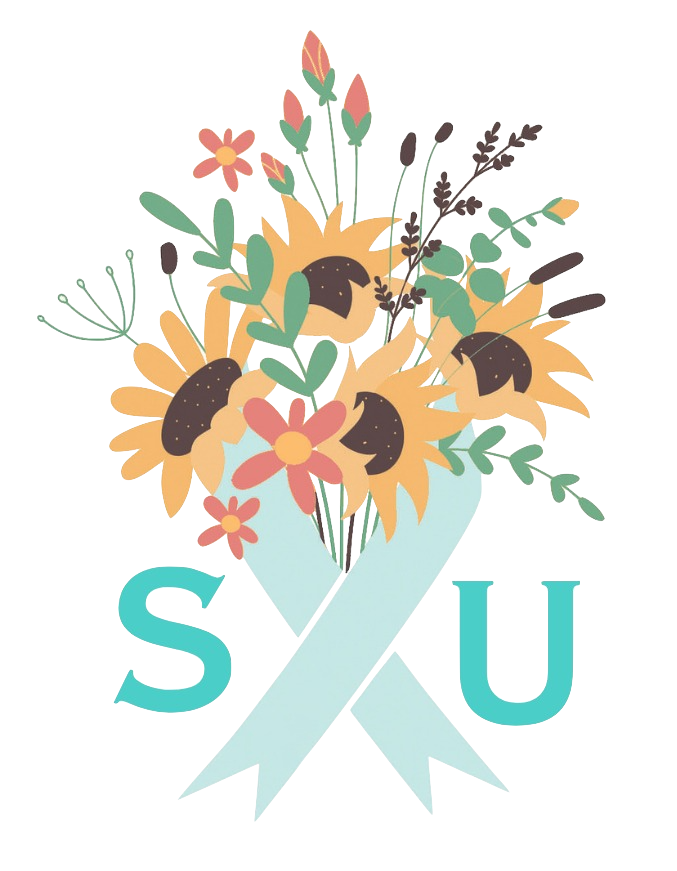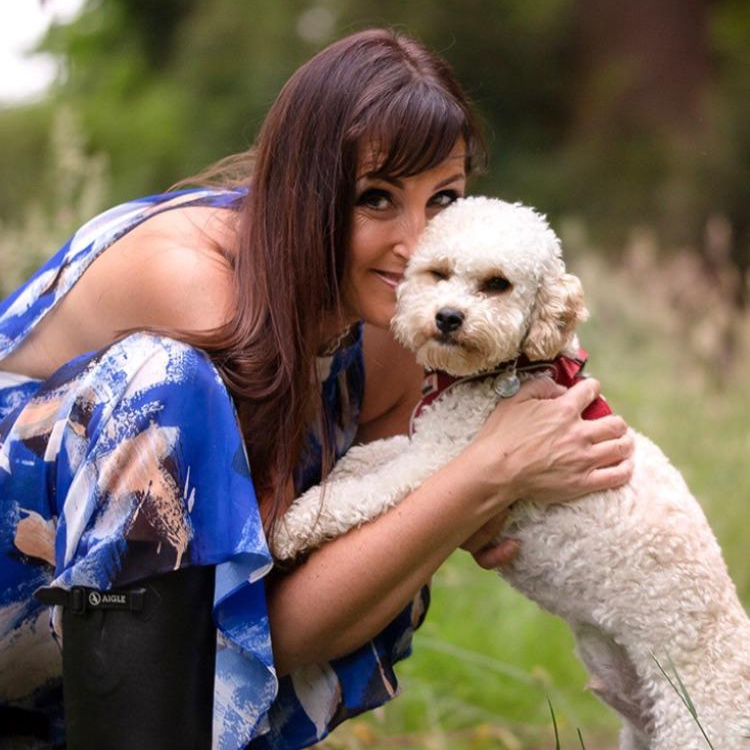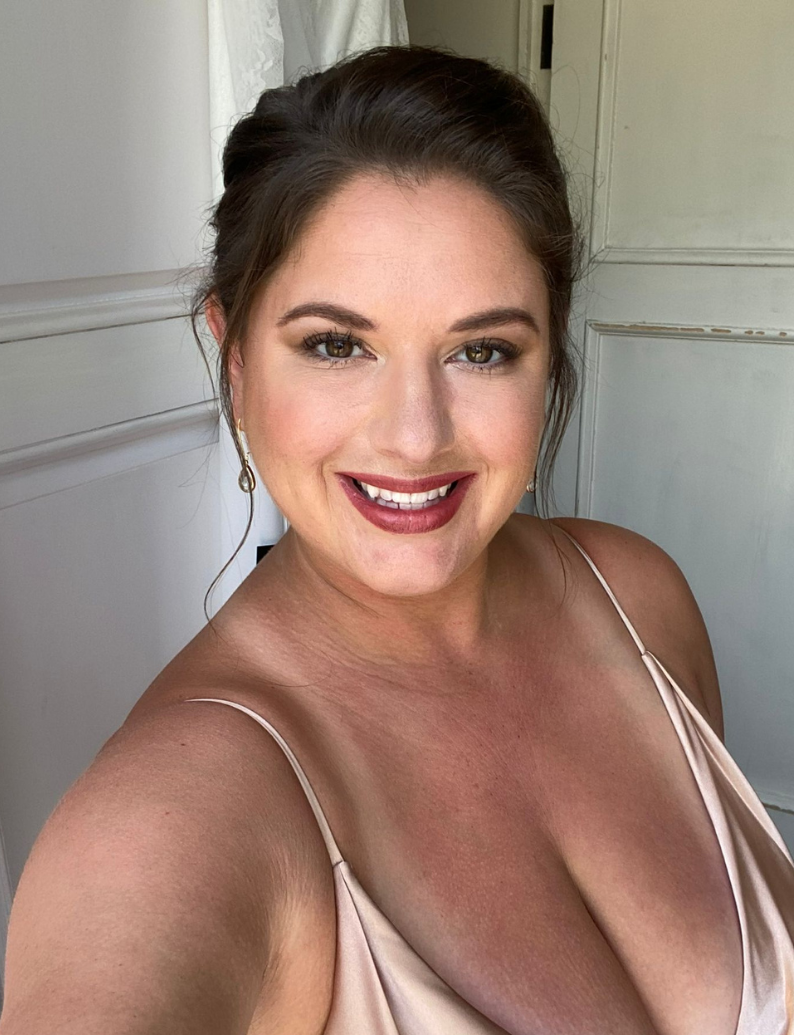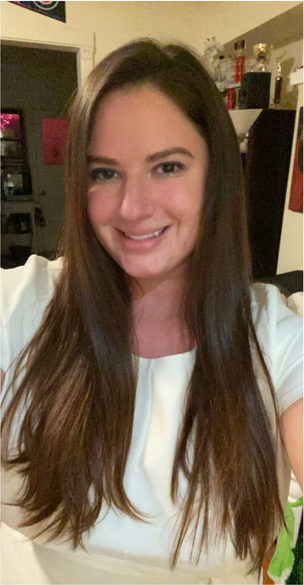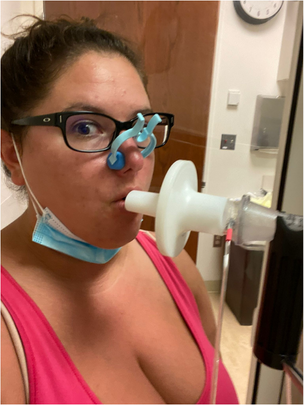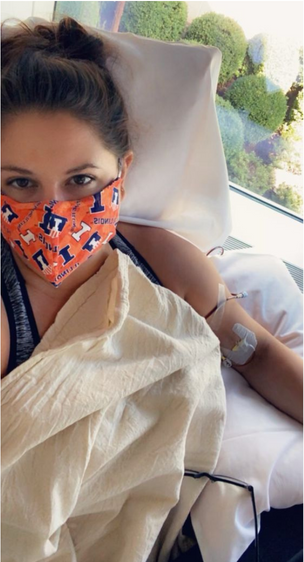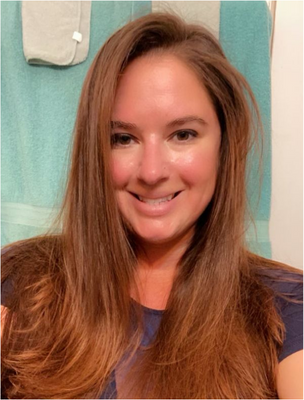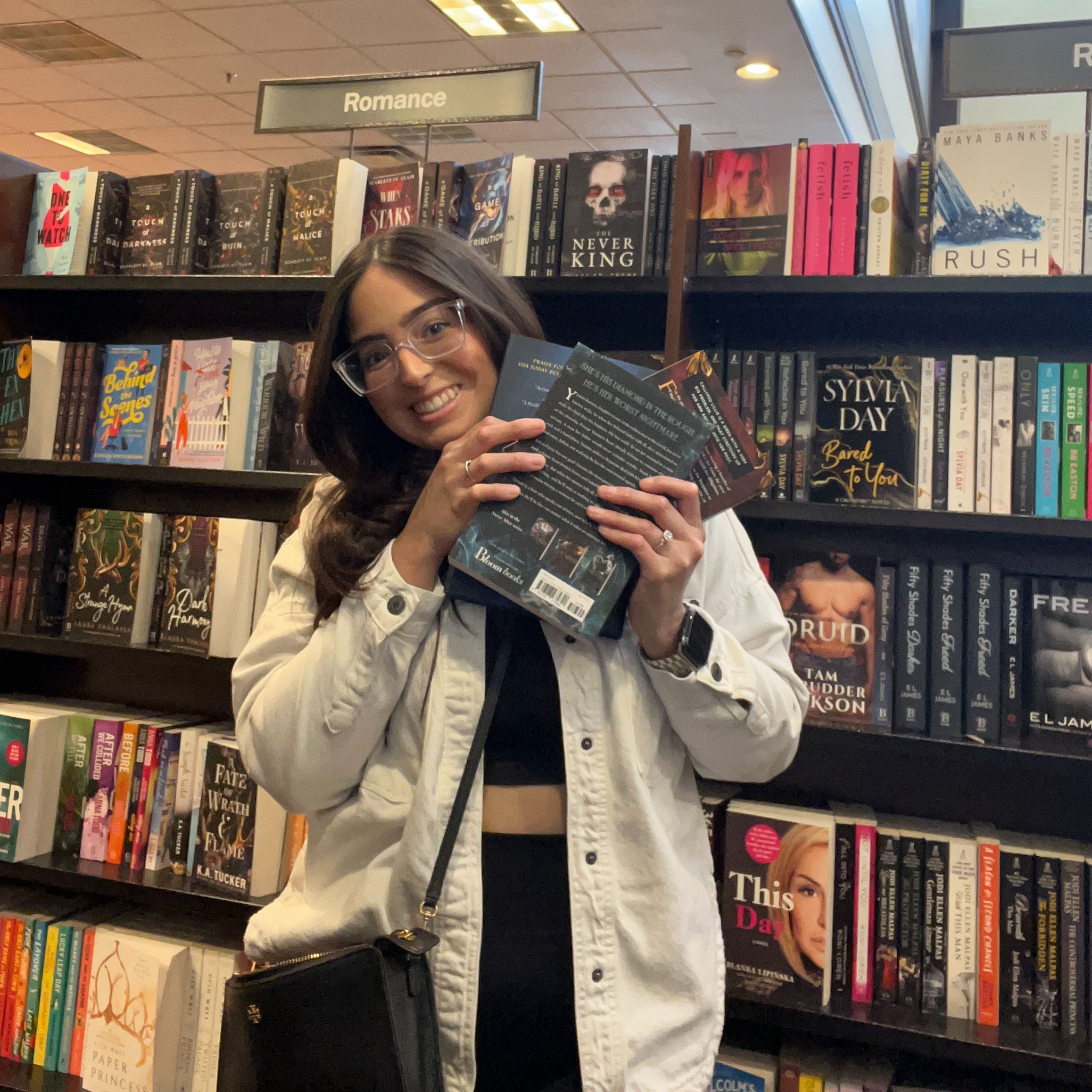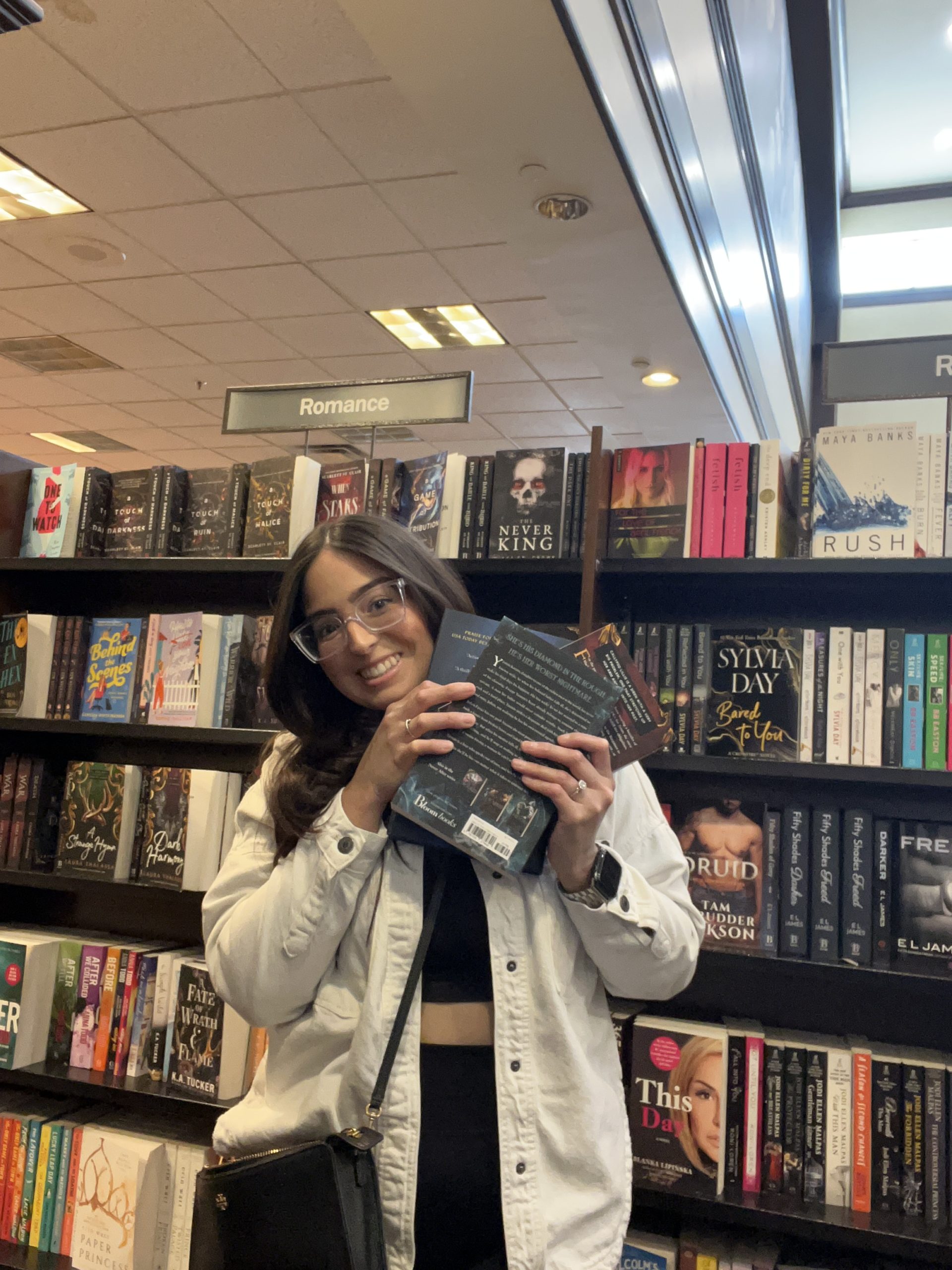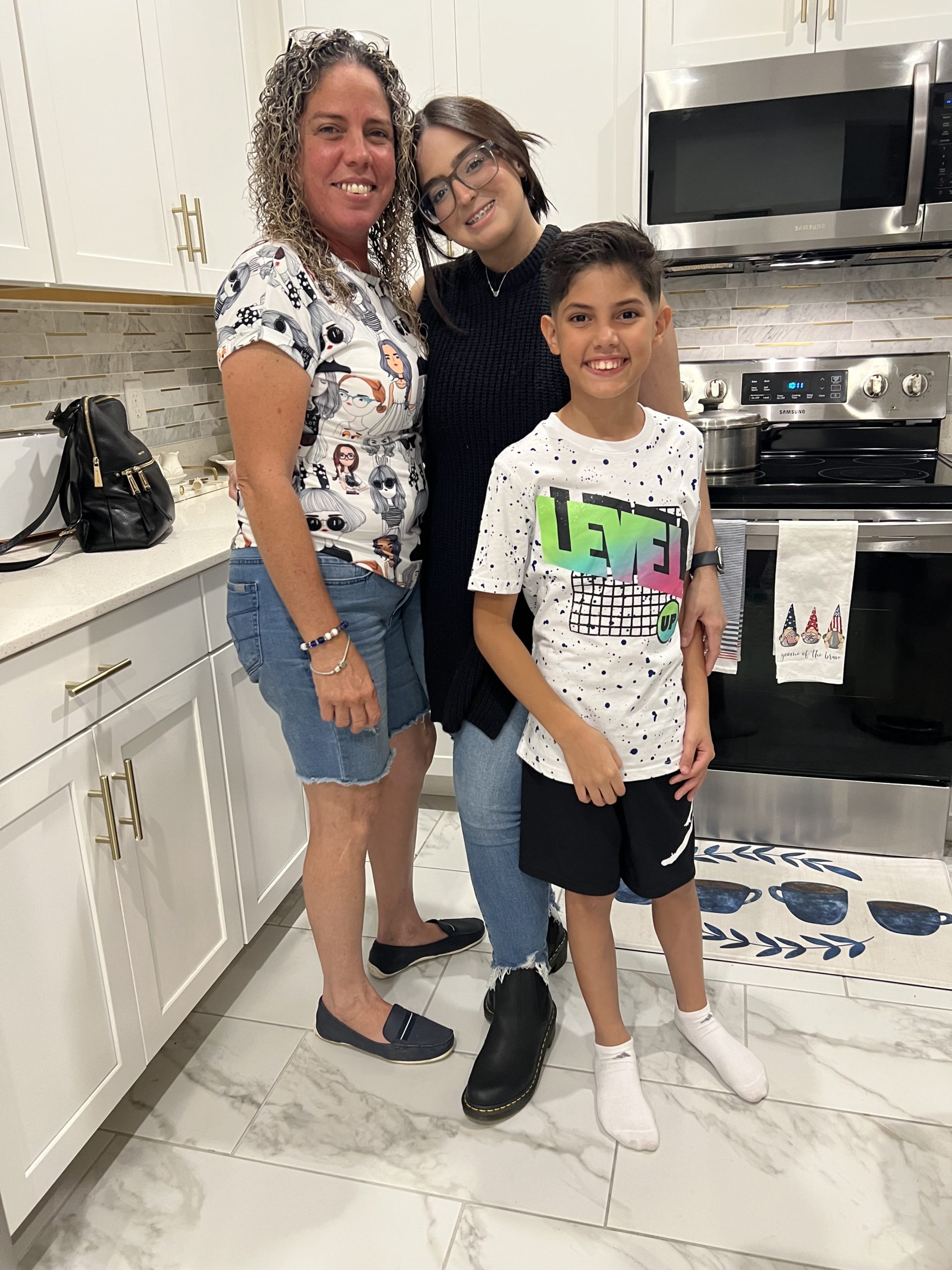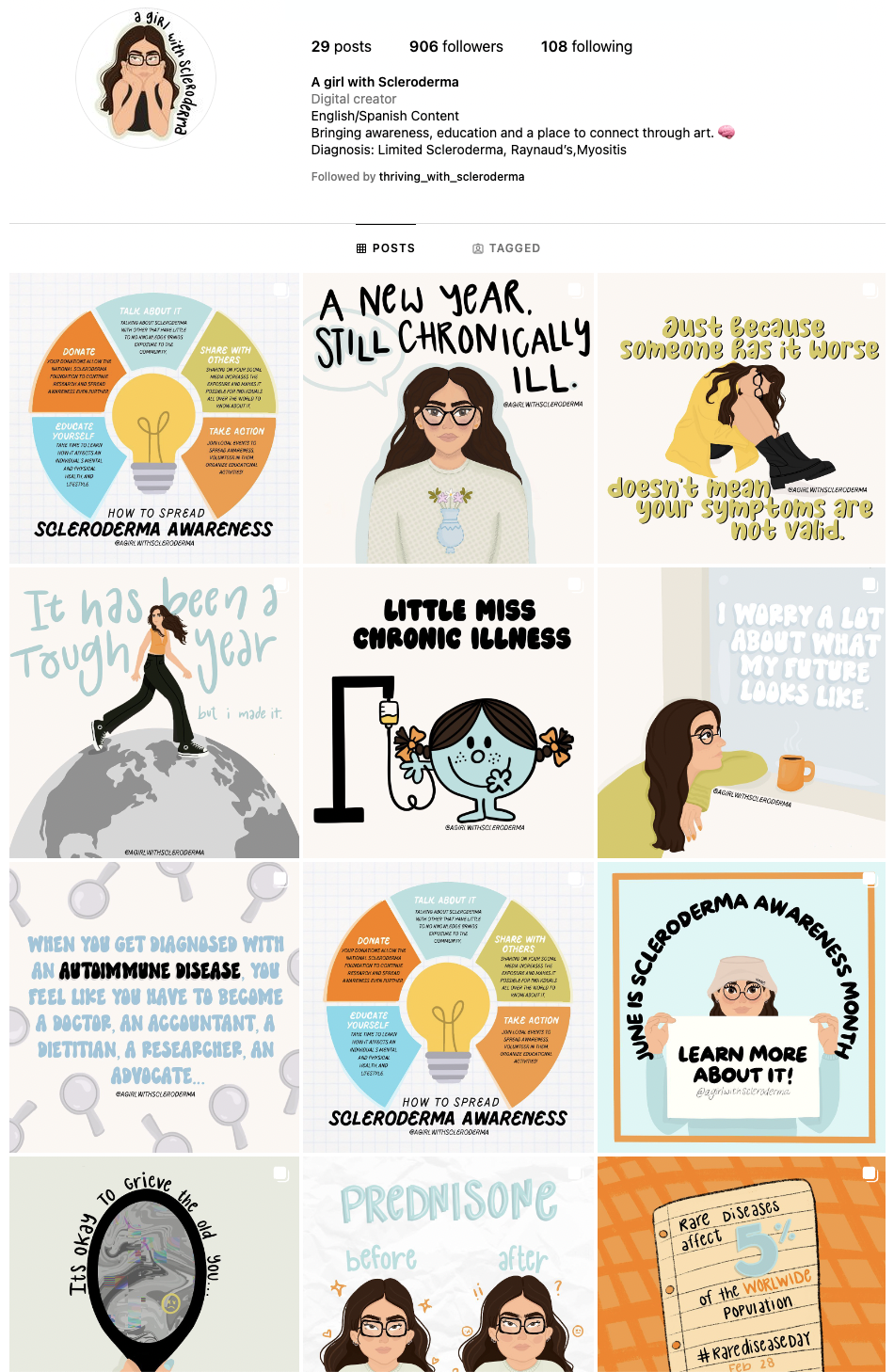Cheryl Iddon
Warrington, Chesire (England)
CHERYL IDDON
Scleroderma Stories Issue 5
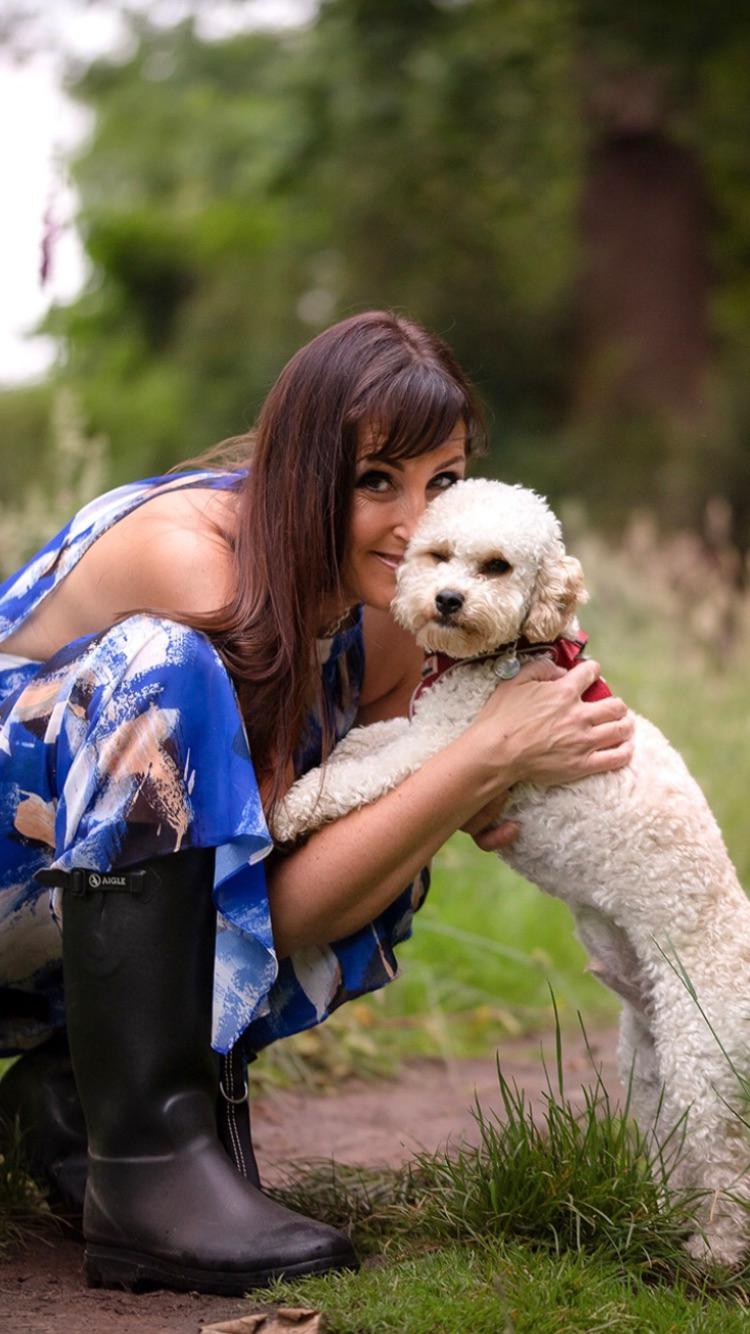
Please introduce yourself
My name is Cheryl. I’m 50 years old, nearly 51. I’m remarried, and I’ve got three children who are 25, 21, and 16 respectively. My youngest still lives with me. I used to have my own business. It was called “The Neat Freak” because I’m obsessed with organization and tidiness.
I live in Warrington, in Cheshire. We’ve lived here in this house now for about two and a half years. Before that, we used to live near Manchester Airport. My husband and I have been together for 10 years.
Could you please share what led to your diagnosis?
It was about two and a half years ago. I used to be a fitness instructor and holistic therapist, and because of that, I’ve always been into sports and working out. Then suddenly COVID struck, and everything was really strange. Towards the end of COVID, in December, I started noticing when I was doing burpees and things, that my wrists and my fingers were starting to get really really achy. I had noticed a couple of months before that I had tingling in my fingers and that they were blue, so I was given Raynaud’s medication.
So then the swelling started in my hands and fingers, and I just couldn’t do my exercises anymore. Meanwhile, I was still working. I had a couple of clients in the medical profession. One of them said, “You know, your ankle shouldn’t be like that.” What was happening was that my ankles were swelling up and my socks were getting so tight that my ankles were spilling over my socks and my trainers! It was really unattractive, because I’m actually quite tall and slim naturally. I thought, “What’s going on here?” She said “you need to get that looked at.” I thought, “Yeah… no problem,” and carried on. I went on with my life.
We moved houses two weeks before Christmas. Literally the day after we moved, the swelling got worse. It was moving up my legs, and my fingers were like sausages. So, my husband dropped me off at the hospital; because of COVID, it was like a drop and run. They gave me a steroid injection, said they didn’t know what it was, and sent me away. I carried on working, and the symptoms were just getting worse. My husband took me to the hospital again and pretty much the same thing happened.
One of my clients suggested I should try somewhere else, because I might just come across someone that knows a bit more, so I packed a bag and pretended I was visiting a friend in another area, and got dropped at the hospital again.
There was a young registrar there, and when she was examining me, she said, “Oh! This looks a bit like scleroderma!” She said what I could do was see someone called Professor Herricks, who’s the head of the scleroderma society in the north of England. She said that I should try to get a referral.
I had a telephone consultation (not with her – it was with somebody at my local hospital, Salford Royal), which was not very effective. They said, “Well, you really need to be expedited,” and I was expedited to see Professor Herricks. From my first trip to the hospital in December, I finally saw her in May of the following year. That was when she diagnosed me. It was all really unreal, to be honest, because I didn’t know what was wrong with me. I didn’t think it was anything serious.
She took us into a side room after she had done all of my skin score tests and said, “You’ve got diffuse cutaneous systemic sclerosis.” I was like, “… and…?” She said she was really sorry, and I was just like, “What does that mean? Am I going to die?” She said that they would see what they could do for me, but it would be a long process. She said that they might need to put me on a remission drug, but that it would take three months to start working.
My husband and I were in bits, because we just didn’t know what we were dealing with at all. I didn’t really want to look it up online, but I did – didn’t tell my husband.
After that diagnosis, they kept me in the hospital for a week and gave me loads of tests. I was put on the drug but experienced really bad pains in my legs – so bad that I couldn’t walk. I had a special chair that reclined and lifted, I had a frame on the toilet and a raised toilet seat, walking aids… And it wasn’t seeming to get a lot better.
In December of that same year, I saw the professor again, and she said, “Look, I think we’re going to have to go down the stem cell replacement route.” Again, I didn’t know what this consisted of. I thought they were going to take my bone marrow out of my bones with a needle… had no idea.
Could you please tell us more about your stem cell replacement journey?
The process started the following May. They gave me chemotherapy and took my stem cells, but then, they said they couldn’t continue my treatment to the next phase because I have breast implants, and they had noticed on one of the scans that one of them had ruptured. They said I would have to get that removed before continuing any further. I thought, “Oh god, what am I going to do now?”
I went to the NHS, and they said, “Yes, it’s ruptured, but we don’t know when we can do it. And if we do it, we can only take one out – not both. And we can’t replace them.” I thought “Oh god – what with everything else, I don’t want to lose them as well!”
So I ended up going private, literally six weeks after I had the first part of my stem cell transplant. They said I’d have to wait another six weeks before going onto the next phase.In September, they gave me more chemotherapy as well as something called cyclophosphamide. I didn’t cope with that, and I ended up having heart failure. I was in a special unit for about two and a half weeks, but I recovered quite well and quickly. I think I was in the hospital for about seven weeks in total. I actually had my stem cells put back three days before I had heart failure.
At the minute, I’m going to a hospital every two weeks to have blood results, and they’ve just put me back on my remission drug because my hands are still progressing. My fingers are solid, and they don’t move. So, I’m back on my “wonder drug” mycophenolate, and that’s where I’m up to at the minute!
My symptoms were getting massively worse until I started my stem cell replacement. I was struggling with my knees, my arms, my hands, and my face as well. Oh my god, my face was so tight that when I stretched my mouth open, it didn’t go very far. It also stretched my eyes down, so I looked like I had a stroke.
But after my treatment, the chemotherapy did wonders for my skin and loosened it. I could actually separate my fingers, which I can’t do now. I could also see between my toes. That was great for a few weeks, but that kind of went out the window.
I went to see a consultant about a month ago, and they could see that I’m beginning to gather a bit of skin on my hands now. And my stomach was solid – it was like a bulbous solidness, but you can actually pinch a bit of fat now. I never thought I’d be so excited to pinch fat! My face is also looser, so I’m really pleased about that.
For now they’re not doing any more treatment to see what the results are like. As of now my skin is looser, not loads but it is looser and my movement is much better. So I’m doing well.
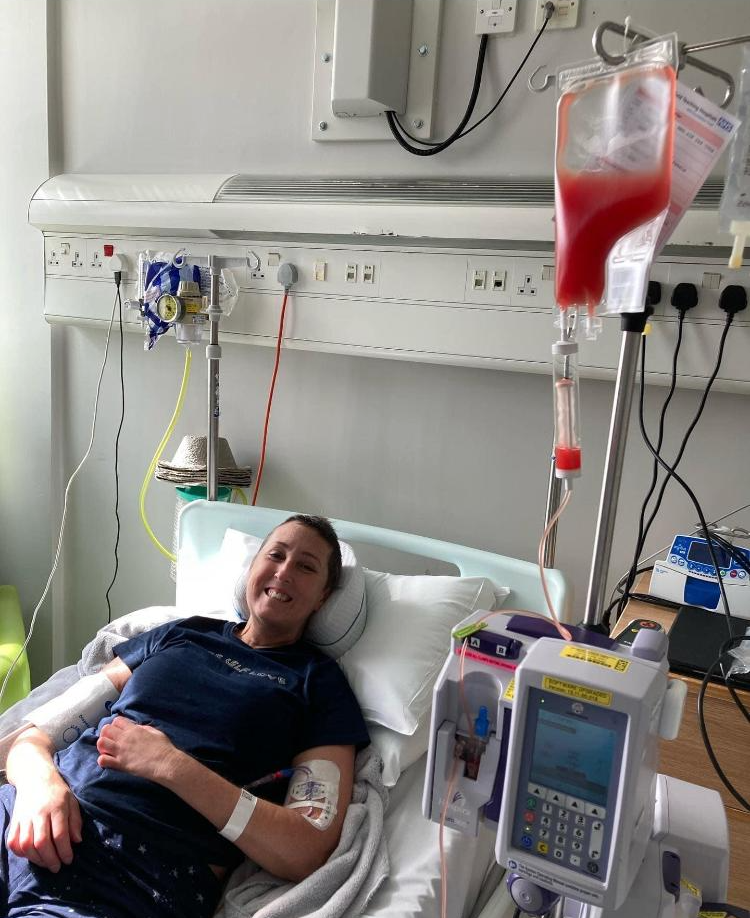
Has scleroderma caused a financial burden?
I had my own successful business with a lot of followers and a five-month waiting list. However, I had to fold my business about two years ago because I could no longer get on and off the floor, and I couldn’t pull myself up. When you’re working with people to organize cupboards and wardrobes, being able to use your hands is key. I was struggling to fold things and do what I wanted to do. I just wasn’t well enough.
I’ve not worked since. I’m classed as disabled now because of my hands and mobility – although my mobility has improved over the last few months, thanks to my personal trainer. They’ve been working wonders for my strength. Obviously, they can’t do much for my mobility, but the strength is good. She’s been amazing because I had excruciating pain in my shoulders and arm – I couldn’t move my arms above my head – but now I can.
Monetary wise, I have not had any incoming money, but luckily my husband has a good job, and he’s been supporting me. I’m really fortunate because I live in the UK, so I do not have to pay for any NHS treatment. Everything I’ve had has cost nothing to me at all, apart from my personal trainer that I pay for once a week. It’s not a lot, and everything else has been free.
Could you please tell us more about The Neat Freak?
Prior to Neat Freak, I worked for the prison service for 25 years. I used to work in a prison doing administration. That’s where I met my husband.
A couple of years before I left the prison service, we had a new company take over the department that I worked in. They gave me a sideways move inside the prison, working directly with prisoners. I had no training for that role, and it scared me to death. I worked in a female establishment; the women were more calculated, and they never forget. I knew it wasn’t working for me.
I used to do a little bit of cleaning as a way to earn an extra bit of money – just one afternoon each week for a lady. She suggested that I could use my organizing skills to help others and showed me another organizer in the UK. The things that she was doing were things that I just did naturally, like reorganizing cupboards, reorganizing kitchens to make them work better, and reorganizing and removing unnecessary items from wardrobes (my passion). I also helped them with admin… anything the client needed to do to make their lives better is what I could do, while saving them time.
A lot of my clients were doctors and professional people who didn’t have time to manage their homes. On the other hand, a lot of clients were people who didn’t have money as well. Sometimes, I worked with hoarders who were struggling to get rid of stuff. Also, people that had mental illnesses that were not conducive to their day-to-day lives and could not manage things – they would have OCD or phobias. So I would go in with them to help them do what they needed to do.
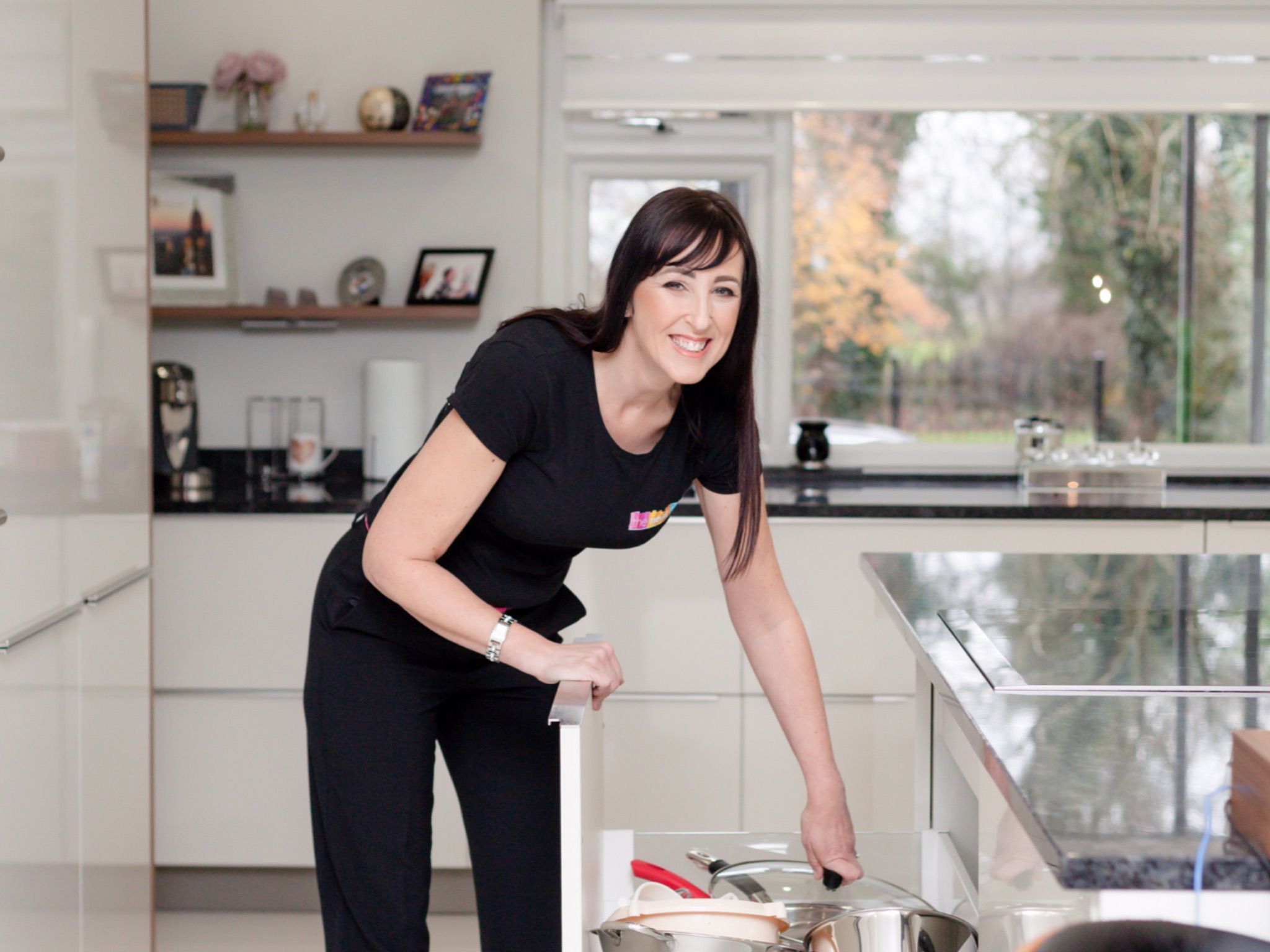
What are your hobbies or interests?
I’m still a born organizer, but I can’t do it as much these days since I can’t work for people. I’m always organizing my home though — I just can’t help it. I’ve got OCD, so I put it to good use!
I used to love running and working out, but unfortunately, I am unable to do that now. However, I am planning to start swimming. Now that I have more mobility in my upper body, I think I’ll be able to stay afloat. I fancy doing that. I also love reading and love eating out. I’ve also got my husband and son to look after, so I’m being a good housewife at the minute.
How has scleroderma affected your ability to run and work out?
Scleroderma has massively affected my ability to stay active. I do engage in physical activity where possible. I have to be careful about my mobility, as I do tend to experience falls, so I have a walking stick. I can’t do aerobics or things that are high-impact, but I can cycle on a static bike (my hands can’t use the break on a regular bike).
I have my personal trainer and do some walking with my stick, but I’m much less active than before. It knocked my confidence, to be honest with you.
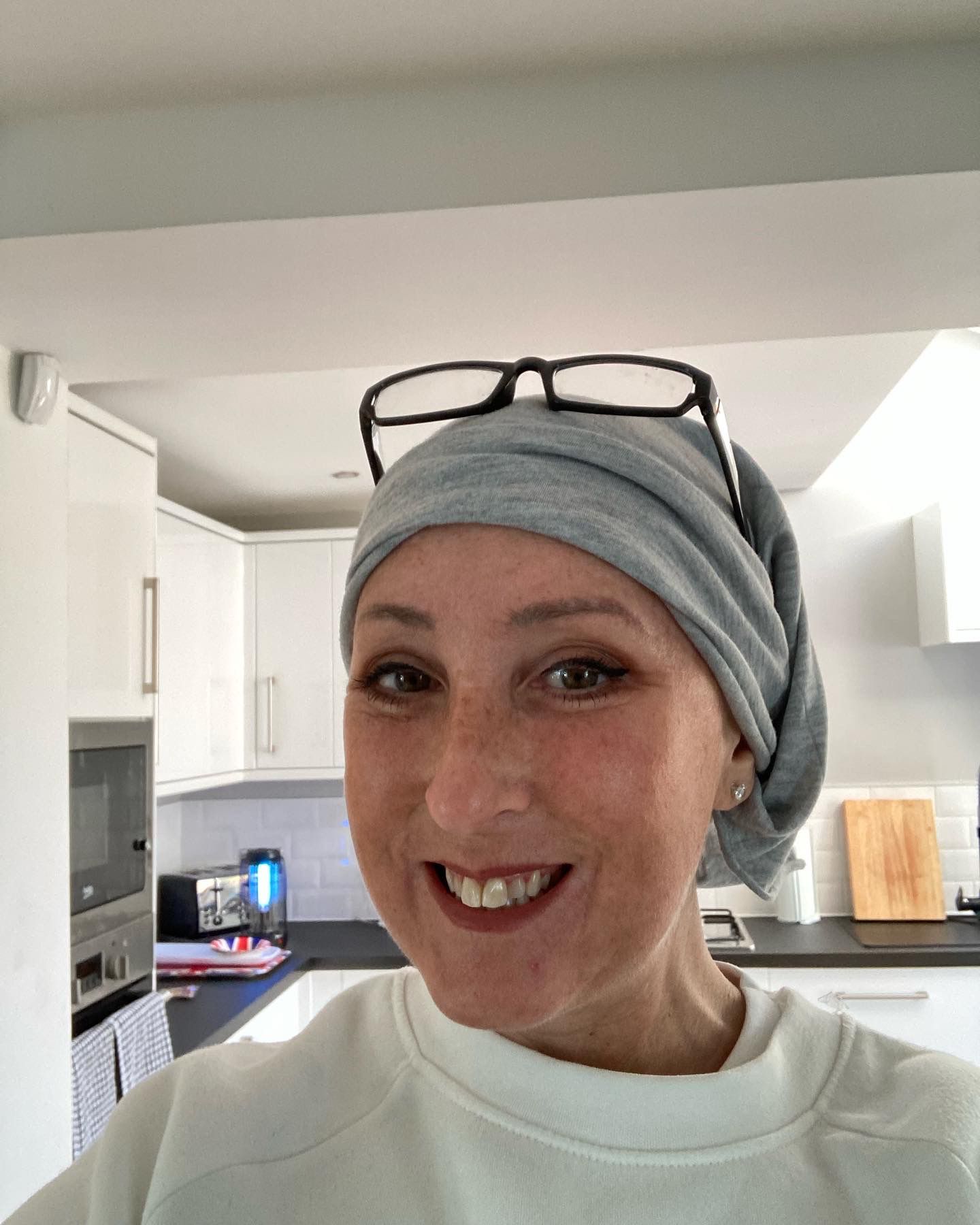
Have you connected with any other people with scleroderma?
Not many. I go for blood monitoring every two weeks, but you don’t know who in the waiting room is like yourself. You don’t want to ask people, “what are you in for?” They could just have rheumatoid arthritis or something. I attended a scleroderma conference recently, the first one I’ve ever been to in the UK, and I actually met a couple of other ladies that have a similar form of scleroderma as me, which is really nice because you feel kind of on your own and isolated sometimes. And it was really clear that they felt on their own as well. There’s way less people in the UK as compared to America, so the chances of finding others aren’t that high.
There’s nothing really in our area for other people like us. So I’m organizing with the hospital to try and sort out a room to maybe meet and invite other patients once a month for a coffee morning, you know, just to chat about themselves and how they’re feeling. And I think it might make people feel a little bit more positive.
I am on a couple of scleroderma sites online, but I have stopped looking to be honest, because it was a bit frightening. Some people post pictures that are quite grim. It was getting to be a bit too much for me. To know less is sometimes better.
How do you lift yourself up from these hits to your confidence?
I’ve always been a glass-half-full, positive person anyways. I believe there is always a way to turn a negative situation into a positive one. There’s always a good. I set daily targets for myself. I used to do this mostly with things that I needed to do with clients, but now it’s things for myself. Sometimes, they’re really simple things, just to keep me motivated – like picking up the dog food in the morning, doing household chores, going for a walk with the dog… There are always loads of things to be done, and crossing things off my to-do list always makes me happy.
Everyone always says I’m really positive. You can’t really dwell on the negative, can you really? You just have to pick yourself up and get on with it! That’s what I’m doing – making the most of life.
Have your relationships with loved ones changed?
To be honest, I don’t know that it’s changed because I stay mostly positive all the time. You’d look at me and think there’s nothing wrong with me, because I’m that insistent that everything continues to stay normal.
I’m not a person who can say no, and people will still ask me for help, and I just say “Alright, I’ll look into that for you! I’ve still got at least two fingers, so I can use my keyboard.” So yeah, they haven’t really changed.
If anything, I’ve grown closer to my sister and my parents. Being an organizer as well, I’ve got a good relationship with my neighbors. We’ve got the coronation happening in the UK next week, and I’ve organized a street party with them.
At the start, people didn’t understand or know how to react to my diagnosis – but I wouldn’t say that they treated me any differently. Everything is great.
I’m not very good at asking for help; I’d rather do it myself. My husband gets so frustrated at that, thinking, “Would you just ask?” For example, I’d rather try to open a bottle myself before asking for help. I think it’s best for my mindset as well as my family’s mindset to see me cracking on with it!
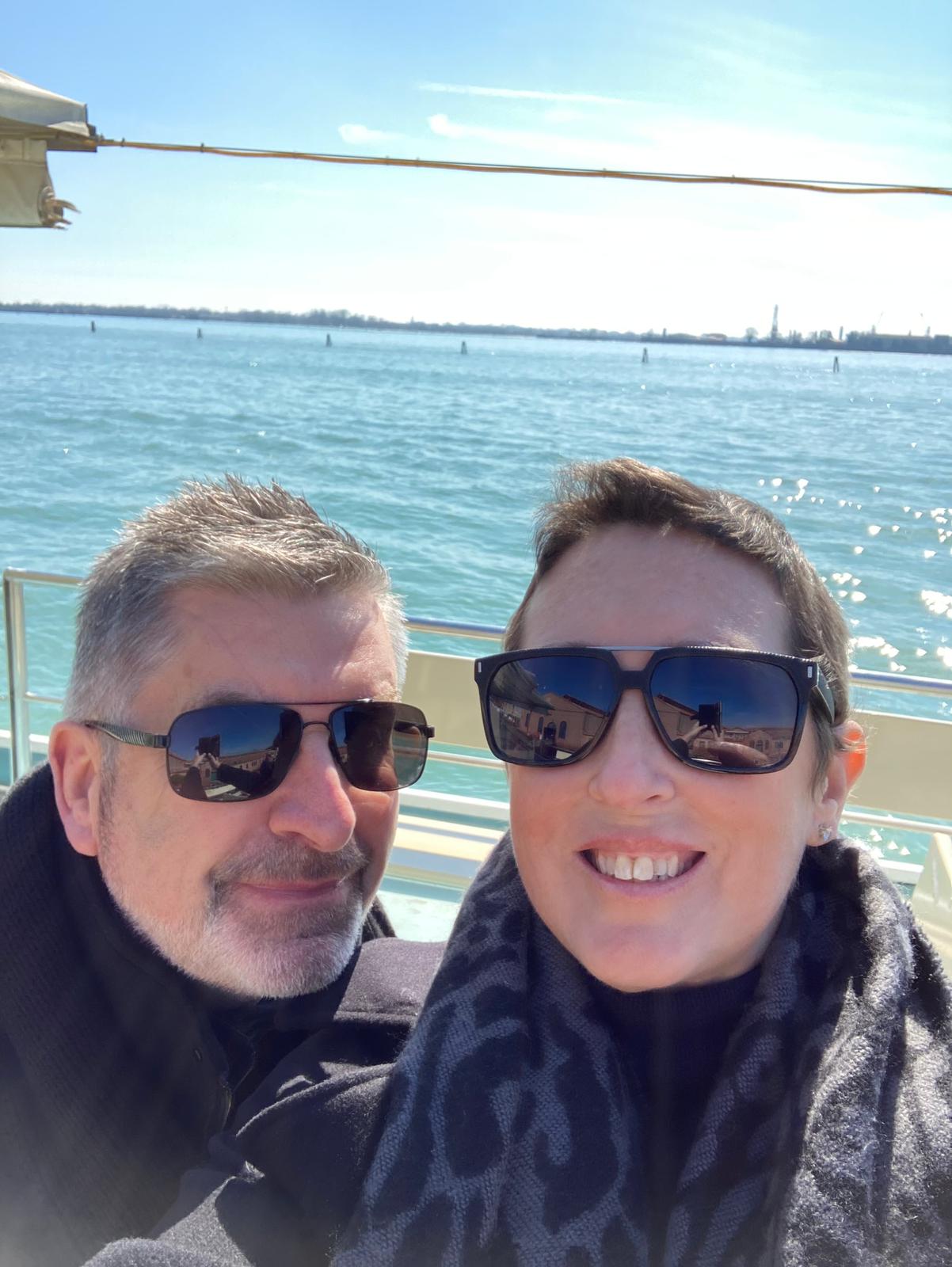
Do you have any short or long-term goals? Anything interesting that you’re planning to do?
Yeah! We live only about an hour away from the sea. We have a place in North Wales called the Great Orme, and it has a steep copper hill. There are cable cars and a tram that take you up to the top, where there’s a big restaurant. I walked up there a few years ago with my husband and son. It’s a tough one! We were just doing it for fitness.
A few years ago, my husband, my son, and I walked up there for fitness purposes. It was challenging. I told my husband that I’m going to walk up there again. Even if it means using a walking stick, I’m going to get up there. It’s my challenge to myself. At the end of that, I’ll get a great big cream cake at the restaurant!
Other than that I’m planning to do a skydive on the 24th of September to raise money and awareness for SRUK, Scleroderma & Raynaud’s UK. My best friend said she’d do it with me, which is really exciting. So far, we’ve raised about 3,000 pounds. I’m really excited. I’m hoping it can give others like me a little bit of enthusiasm to do things in life, because there’s no reason we can’t.
Apart from that, my husband’s a singer at night. We were at an event last week, and they asked if they could do a fundraiser for me as well as the charity. So at the moment, we’re just organizing lots of different professional singers to come in and they’re going to raise all the money. Anything donated and raised from the event goes directly to the charity as well. I’ve invited those two women that I met at the scleroderma conference and said that if they want to bring friends and family, they could by all means.
What got you inspired to give skydiving a go?
So I was on a flight back from Prague earlier in the year, because I’ve just been given the all clear to fly. So this year, we’ve gone a bit mad and done a lot of traveling. I was looking out the window and thinking to myself how serene it looks out there, and then I wondered what it would feel like just to be floating, how nice it would be. And at that point I thought to myself “I should do a skydive”. I mentioned it to a friend and she jumped at the chance to do it with me. Within about three days, it was organized. I’ve got a GoFundMe page, which is linked directly to my page if people want to sponsor.
It’s all about raising awareness. When I was diagnosed, nobody had heard of scleroderma. Even now with the fundraising this morning, the club that said they would do it put out a call for help, and one of the guys that did so said it was for cancer. People always assume when you’ve got a terminal illness that it’s basically cancer, with the hair falling out and everything. It’d be really nice for people to actually recognise scleroderma and its symptoms, to understand what it is and that they’re not alone in dealing with it.
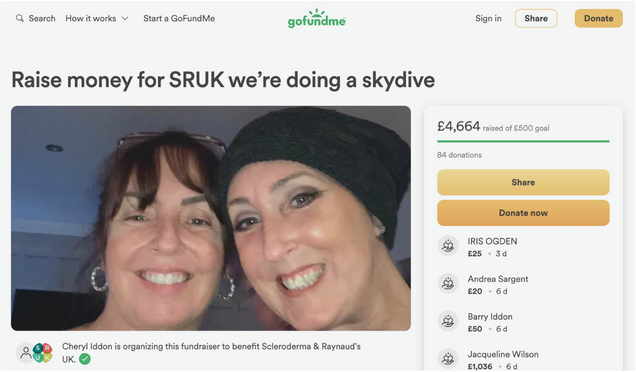
Is there anything you’ve learned over time that you wish you knew before your diagnosis?
I’ve learned that life is short, and it’s important to embrace every moment. I don’t know how many years I have left, but I hope I have lots! These drugs that they are giving me are great, and things are changing all the time. New things are always coming out. Since I’m the first person with my diagnosis to have stem cell replacement therapy, I think I’m being watched more by the medical profession to see what’s happening. I’ve been helping them with their studies as well. I’ve been doing nail fold capillary testing, hot and cold therapy on my hands, measurements of my Raynaud’s… I’ve been helping them lots. I think they’ve got more of a vested interest in me!
My main skill from the past few years is definitely just never giving up. Anything is possible, you just have to push yourself and keep a positive mental attitude.
Be sure to follow us on Instagram and Facebook (@sclerounited) to see more scleroderma warriors’ journeys in our weekly Sclero Sunday series.
Are you a scleroderma warrior? We’d love to interview you for Scleroderma Stories! Please visit tinyurl.com/share-my-sclero-story or email us at contact@sclerounited.us
